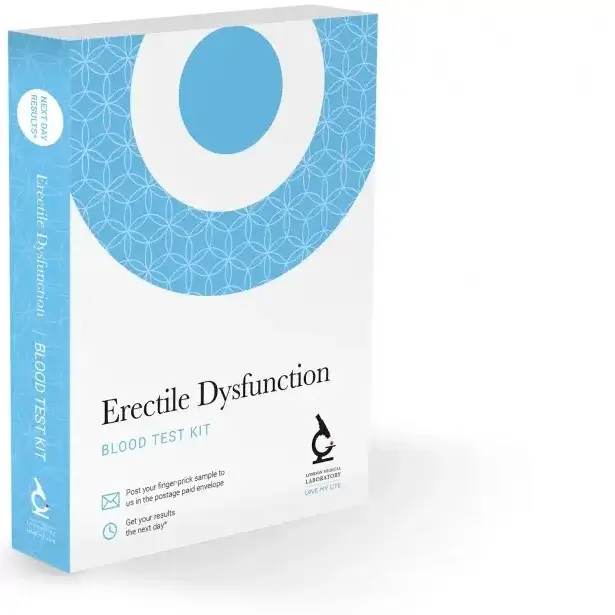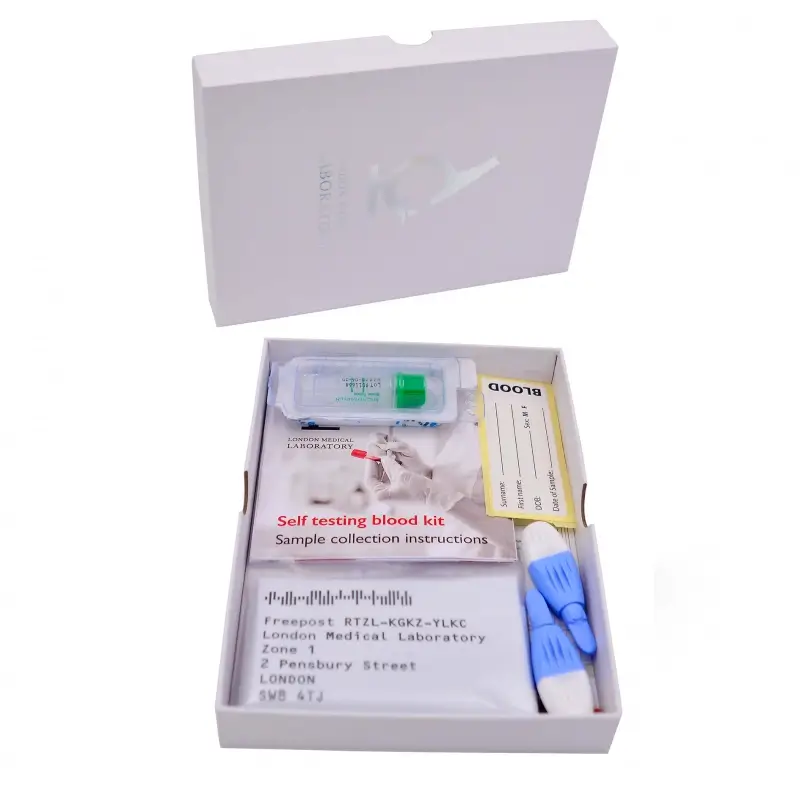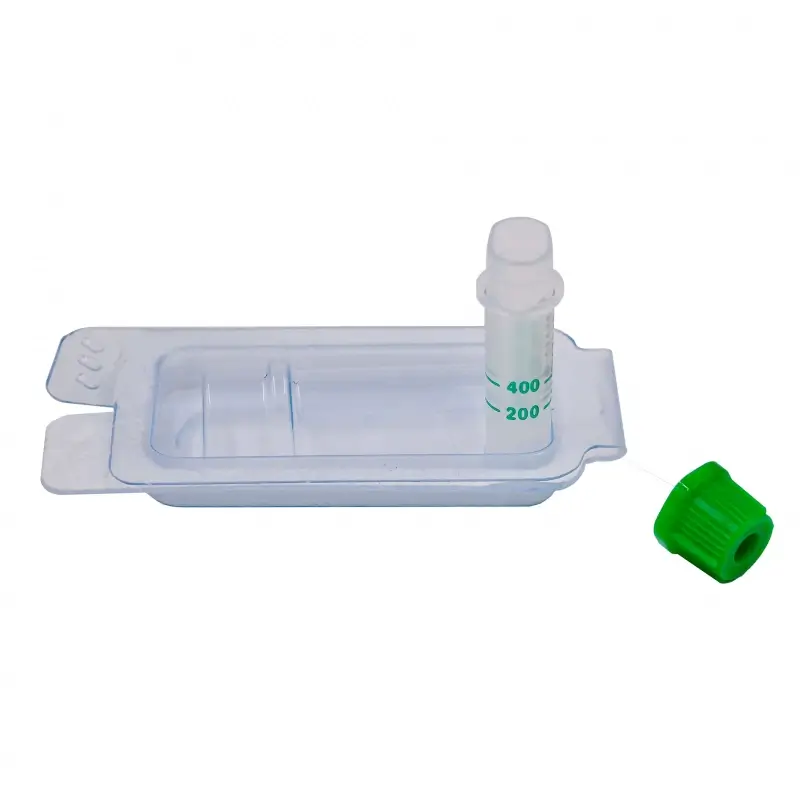
Hormone check to help Erectile Dysfunction
Amiry & Gilbride Pharmacy partners with London Medical Laboratory to deliver this test.
The price for this in-pharmacy test is provided when booking.
Introduction
Our erectile dysfunction profile checks a range of male hormones and other health indicators to confirm a diagnosis of erectile dysfunction.
How does this test work?
A blood test is a reliable way to check for underlying health conditions or monitor existing conditions.
If you have health concerns, are managing an existing condition, or want to manage your general health, a blood test is fast, affordable, and straightforward.
Our in-store testing is designed to be as simple, stress-free and convenient as possible.
Blood test results are available within 5 to 7 days.
Please note that blood tests are not a substitute for seeing your doctor. You should always consult a doctor or trained healthcare professional if you have symptoms or are starting a course of treatment.


What do you test?
Cholesterol (6 biomarkers)
High cholesterol can be a risk factor for coronary disease, stroke and heart attack. It can also block your arteries, so finding out your cholesterol levels can help you make positive dietary and lifestyle changes to improve your chances of a long, healthy life.
Total cholesterol
As part of your erectile dysfunction profile, we also test for total blood cholesterol, including low-density (LDL) and high-density (HDL) lipoprotein cholesterol. Lipoproteins produce hormones like testosterone that affect growth, development, and reproduction. Total cholesterol tests also evaluate the risk of developing heart disease.
High-density lipoprotein (HDL)
High-density lipoprotein’s primary function is to remove cholesterol from the heart’s arteries and is classified as ‘good cholesterol’. HDL tests estimate the risk of heart disease.
Low-density lipoprotein (LDL)
Low-density lipoproteins, or ‘bad cholesterol,’ cause cholesterol to build up and block the arteries. LDL tests are used to assess the risk of developing heart disease.
Total cholesterol: HDL ratio
This test establishes the amount of ‘good cholesterol’ or HDL as a ratio of the total cholesterol in the body. HDL helps remove LDL or ‘bad cholesterol’ from the arteries. The HDL ratio test evaluates your risk of heart disease and forms part of the erectile dysfunction profile.
Non-HDL cholesterol
This test establishes the total cholesterol in the body, excluding HDL or ‘good cholesterol’. Non-cholesterol tests help establish the lipid profile and help assess the risk of heart disease.
Triglyceride
Triglyceride is a fat derived from foods like butter and oil and stored in the body’s tissues. Triglyceride tests are valuable in establishing the lipid profile and estimating the risk of coronary disease.
Diabetes (1 biomarker)
Checking your HbA1c levels can help confirm if you already have (or are at risk of developing) diabetes. Undiagnosed and unmanaged diabetes is a leading cause of mortality. If you live with diabetes, regular HbA1c can help you monitor and manage your condition.
Haemoglobin A1C
Haemoglobin A1C or HbA1C measure the average blood sugar levels, usually over the previous 2 or 3 months. The HbA1C test is commonly used in diagnosing and monitoring diabetes and measures glucose levels in the blood. This type of sugar can build up and bind to the haemoglobin in your red blood cells. As part of your erectile dysfunction profile, the HbA1C test measures levels of bound glucose to assess your diabetes risk or diagnose the condition.
Hormones (2 biomarkers)
Your hormones support a complete range of bodily functions and processes, including growth and development, appetite, metabolism, and fertility. Hormone deficiencies and imbalances can cause a wide range of conditions and symptoms.
Testosterone
Both men and women produce testosterone. Men produce testosterone mainly in the testes. Its production is stimulated and controlled by the luteinising hormone required to produce sperm. Boys produce large quantities of testosterone during puberty, causing muscle growth and body hair. In adulthood, testosterone maintains muscle mass and regulates the male sex drive. As part of your erectile dysfunction profile, a testosterone test can help diagnose infertility and erectile dysfunction.
Prolactin
The brain’s pituitary gland produces prolactin, which is the hormone that promotes lactation during and after pregnancy and birth. This test is used to diagnose male and female infertility, menstrual problems, and erectile dysfunction.
Prostate (1 biomarker)
The prostate has an essential function in reproduction, producing the fluid that mixes with your sperm to create semen. As men age, problems with the prostate become more common and can lead to serious conditions, like cancer, if left undiagnosed.
Total prostate-specific antigen
The total prostate-specific antigen (PSA) test measures the total amount of PSA produced by the prostate. It is used to determine PSA levels in the blood and to detect and monitor the body’s treatment response for prostate cancer.
Thyroid (1 biomarker)
Thyroid disorders are common, but often go undiagnosed. They can cause mood problems, tiredness, and weight issues. This test evaluates whether the thyroid is functioning correctly.
Thyroid-stimulating hormone (TSH)
Thyroid stimulating hormone, known as TSH, is produced by the pituitary gland in the brain and is the primary stimulus for the thyroid gland located in the throat. TSH controls several body functions, including muscle strength, heart rate, bone health, weight regulation, and body temperature. A TSH blood test, commonly tested with Free 3 and Free 4, is used to indicate thyroid disease.
FAQs
What is erectile dysfunction?
Erectile dysfunction (ED) means you may have trouble achieving and maintaining an erection. It’s a condition that can affect up to 1 in 5 men in the UK. An erectile dysfunction profile can help set your mind at rest about the causes of your ED.
Can erectile dysfunction be prevented?
Yes, you can prevent erectile dysfunction by reducing risk factors for heart disease, eating a healthy diet, maintaining a desirable weight, drinking less alcohol, and stopping smoking. Keeping your cholesterol and blood pressure levels in check is also recommended.
Is erectile dysfunction a normal process of getting older?
No, erectile dysfunction is not part of the natural ageing process and can be prevented.
What is an erectile dysfunction profile?
An erectile dysfunction profile is a series of hormone blood tests that check for hormone imbalance, symptoms of infertility and conditions that can lead to erectile dysfunction. This targeted, comprehensive profile can help exclude any physical cause for ED.



